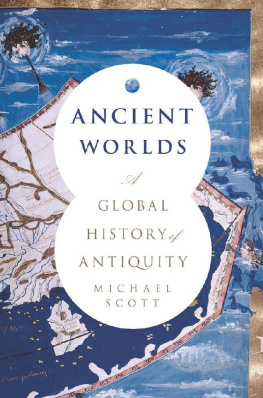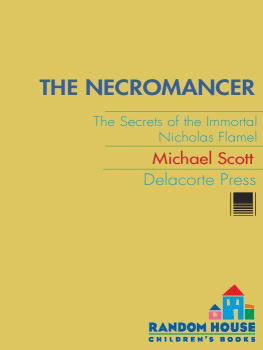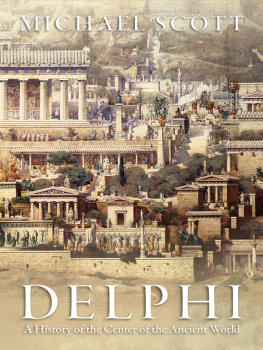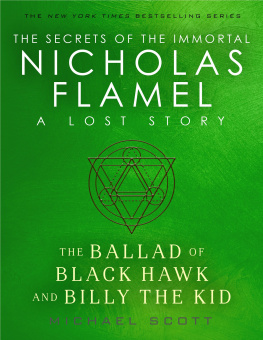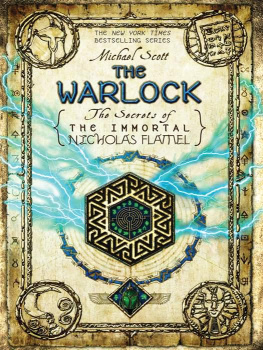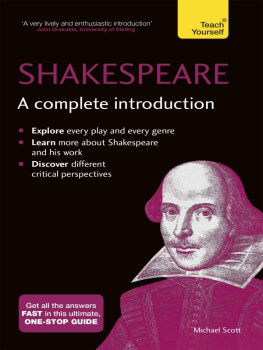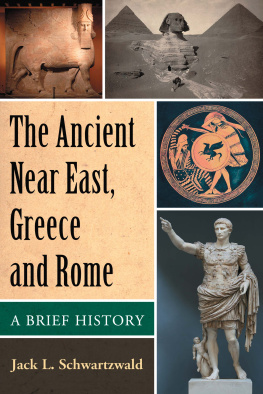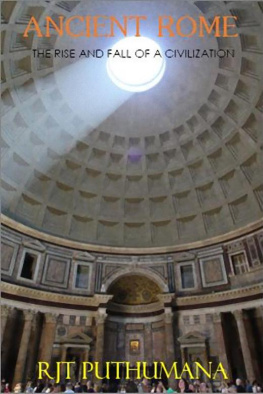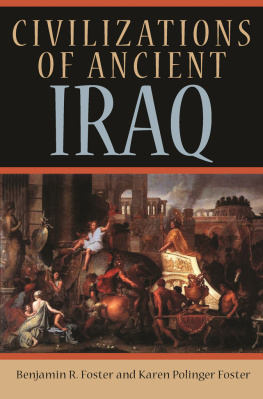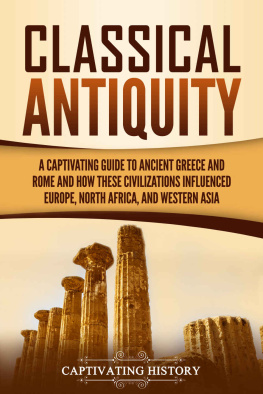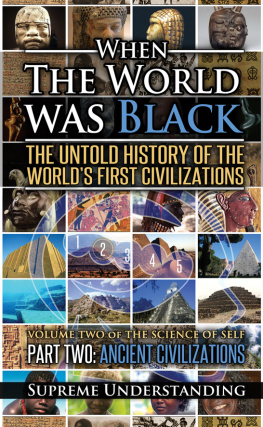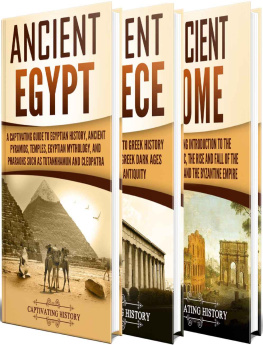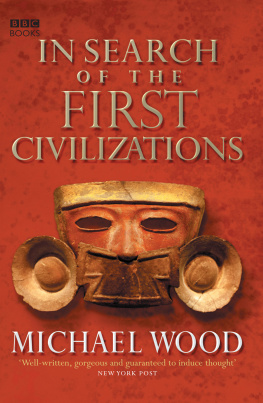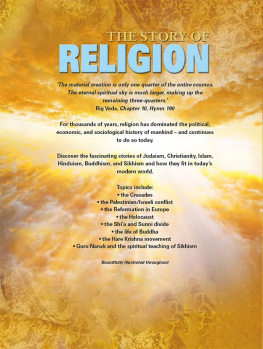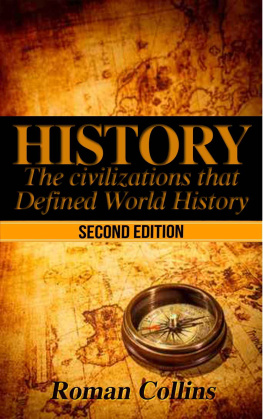
ALSO BY MICHAEL SCOTT
From Democrats to Kings: The Downfall of Athens to the Epic Rise of Alexander the Great
Delphi and Olympia: the Spatial Politics of Pan-Hellenism in the Archaic and Classical Periods
Space and Society in the Greek and Roman Worlds
Delphi: A History of the Centre of the Ancient World

Copyright 2016 by Michael Scott
Published in the United States by Basic Books, an imprint of Perseus Books, LLC, a subsidiary of Hachette Book Group, Inc.
All rights reserved. Printed in the United States of America.
No part of this book may be reproduced in any manner whatsoever without written permission except in the case of brief quotations embodied in critical articles and reviews. For information, address Basic Books, 250 W. 57th St., 15th floor, New York, NY 10107.
Books published by Basic Books are available at special discounts for bulk purchases in the United States by corporations, institutions, and other organizations. For more information, please contact the Special Markets Department at the Perseus Books Group, 2300 Chestnut Street, Suite 200, Philadelphia, PA 19103, or call (800) 810-4145, ext. 5000, or e-mail
LCCN: 2016950968
A catalog record for this book is available from the Library of Congress.
ISBN: 978-0-465-09473-8 (EB)
First published in Great Britain by Hutchinson in 2016
Hutchinson is part of the Penguin Random House group of companies whose addresses can be found at global.penguinrandomhouse.com.
10 9 8 7 6 5 4 3 2 1
For Alice and the bean
You may give them your love but not your thoughts.
For they have their own thoughts.
You may house their bodies but not their souls,
For their souls dwell in the house of tomorrow,
which you cannot visit, not even in your dreams.
KHALIL GIBRAN, The Prophet (On Children)
Contents
A book such as this is impossible without the support and encouragement of others. From the inception of the idea my agent Patrick Walsh at Conville & Walsh has offered tremendous (and humorous) support; and my editors at Hutchinson, Sarah Rigby and Richard T. Kelly, alongside Jocasta Hamilton and the rest of the fantastic Hutchinson team, have been indefatigable in their encouragement, ideas, comments, suggestions and good humour. Thank you to you all for believing in me and in this book.
I am grateful also to Mandy Greenfield for her copy-editing, and to Jeff Edwards for drawing the maps.
To research such a vast expanse of history requires access to some of the great library institutions in the UK and abroad. I have been privileged to work in the British Library, London Library and Institute of Classical Studies Library in London; the University Library and Classics Faculty Library in Cambridge; the Sackler and Bodleian Libraries in Oxford; the University Library in Warwick; the British School at Athens library in Greece; as well as the Green Library at Stanford University in California. Thank you to all these institutions, and to their wonderful staff, for making the research such a joy.
But a book of this kind also requires the ongoing support and input of scholars from a vast array of specialist fields, who have kindly given their time and energy to open up their worlds of study for me and help develop my ideas in discussion, both in person and via email. It is without doubt one of the best aspects of this profession, and particularly this project, to have the opportunity to engage with such a broad range of fascinating and insightful people from across the world, and I have been deeply heartened by the enthusiasm with which they have responded in kind to this project. My thanks go to Prof. Robin Osborne; Prof. Paul Cartledge; Dr John Patterson (Cambridge); Prof. Giorgio Riello and the Global History and Culture Centre team (Warwick); Prof. Lee Dian Rainy (Memorial University of Newfoundland); Prof. Jeffery Lerner (Wake Forest University); Dr Christopher Baumer (Switzerland); Prof. Julia Shaw (UCL); Prof. James Hegarty (Cardiff); Prof. Simon Payaslian (Boston University); Dr Peter Frankopan (Oxford); and Prof. Ian Morris (Stanford). In particular, my sincerest thanks also go to Prof. Walter Scheidel at Stanford for hosting me during my visit and for his encouragement, insight and advice.
My rock during the writing of this book and of many more years besides has been my wonderful family, and especially the woman I am now lucky enough to call my wife, Alice. Her energy, loyalty and love give inspiration and resolve, comfort and enjoyment in equal measure. Alice and I are now expecting our first child. And so while this book is a history of ancient worlds for our present global times, I also hope that it will be of use to our child, growing up in a future which, while we cannot comprehend it, will without doubt be even more globally interconnected.
Greek and Roman names and terms have been transcribed in English using their most common (mostly Romanised) forms, with key terms italicised for ease of reference. Chinese names and terms have been transcribed using the Hanyu Pinyin system (although popular alternatives are sometimes given in brackets), again with key terms and literary titles italicised. Names, terms and literary titles in all other languages (e.g. Armenian, Pali and Sanskrit) have been transcribed using their most well-recognised English counterparts, again with key terms and literary titles italicised.

T he ants were as big as wild foxes and they bored tunnels into the earth, mole-like, excavating soil into towering piles on the surface. It was said to be dangerous for any human to look directly at these piles, for they were laced with gold the best and brightest in the world, shining with lethal lustre under the burning sun. The local people, however, could not be dissuaded from desiring the gold forthemselves.
Mounting wagons attached to their fastest horses, they would approach at midday while the ants were busy digging deep below and cart off as much earth-and-gold mix as they could. They had to move quickly and silently, though, lest they alert the ants, who would then swarm back to the surface to attack and pursue the thieves across the landscape. The locals would scatter chunks of flesh in the hope of distracting the ants from the chase, but not all of these wily insects were taken in. Some made directly for the humans and their wagons, and engaged in close combat to the death...

Welcome to India at least as it was described by a Greek called Megasthenes, on the cusp of the third century BCE. Towering over them all was the Indian elephant, larger than any elephant of Africa, whose counterpart in the sea was the whale, five times the Indian elephants size.
Megasthenes interests were not confined to beasts: his India was home to exotic humans, too. He records tales of tiny men, and men as tall as giants; some men with no noses, and other men without mouths who fed by inhalation, but could be killed by too harsh a smell; men whose feet sporting eight toes on each were turned backwards; men whose heads were canine, and who made conversation by barking.
Megasthenes text is not the fanciful concoction of a Greek slumbering in the far-flung afternoon sun of Athens or Sparta. In fact, it is the first ever eyewitness account by a Western observer of the plains of India surrounding the Ganges. Megasthenes, after all, was not some random traveller who stumbled into India by accident. He was the first official Greek ambassador to the royal court that ruled over the majority of northern India at this time, based in the city of Pataliputra (modern-day Patna). This was the court of the man whom Greeks called King Sandrocottus, better known in Indian history as Chandragupta Maurya, founder of one of Indias great dynasties.
Next page
